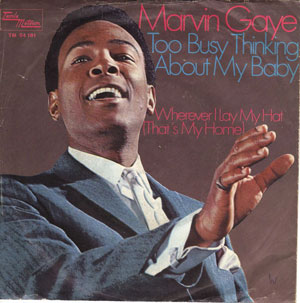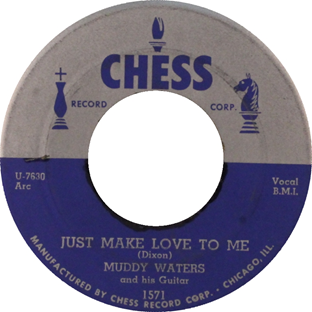Related Research Articles

Clara Ann Fowler, known professionally as Patti Page, was an American singer of pop and country music and occasional actress. She was the top-charting female vocalist and best-selling female artist of the 1950s, selling over 100 million records during a six-decade-long career. She was often introduced as "the Singin' Rage, Miss Patti Page". New York WNEW disc-jockey William B. Williams introduced her as "A Page in my life called Patti".

"Unchained Melody" is a 1955 song with music by Alex North and lyrics by Hy Zaret. North wrote the music as a theme for the little-known prison film Unchained, hence the song title. Todd Duncan sang the vocals for the film soundtrack. It has since become a standard and one of the most recorded songs of the 20th century, most notably by the Righteous Brothers in July 1965. According to the song's publishing administrator, over 1,500 recordings of "Unchained Melody" have been made by more than 670 artists, in multiple languages.

Thomas Jefferson Edwards was an American singer and songwriter. His most successful record was the multi-million-selling song "It's All in the Game", becoming the first African-American to reach No. 1 on the Billboard Hot 100.

"I'm Gonna Make You Love Me" is a soul song most popularly released as a joint single performed by Diana Ross & the Supremes and The Temptations for the Motown label. This version peaked for two weeks at #2 on the Hot 100 in the United States, selling 900,000 copies in its first two weeks, and at #3 on the UK Singles Chart in January 1969.

"Too Busy Thinking About My Baby" is a Motown song written by Norman Whitfield, Barrett Strong, and Janie Bradford. The song was first recorded by The Temptations as a track on their 1966 album Gettin' Ready. Eddie Kendricks sings lead on the recording, which was produced by Whitfield. Jimmy Ruffin also recorded a version with The Temptations providing background vocals in 1966. It remained unreleased until 1997.

"I Will Always Love You" is a song written and originally recorded in 1973 by American singer-songwriter Dolly Parton. Her country version of the track was released in 1974 as a single and was written as a farewell to her former business partner and mentor of seven years, Porter Wagoner, following Parton's decision to leave The Porter Wagoner Show and pursue a solo career.
"Don't Let the Stars Get in Your Eyes" is a country song about a man away from home who is worried that his paramour may unwittingly stray from their relationship. The song was recorded in many different styles by many artists. It was written by Winston L. Moore and published in 1952. The song became a No. 1 hit in both the US and UK when recorded by Perry Como.
"I'm Walking Behind You" is a popular song which was written by Billy Reid and published in 1953. The recording by American singer Eddie Fisher was a No. 1 hit in both the US and UK Singles charts, but it had previously been recorded by Reid's former partner, Dorothy Squires, who had a hit with the song in the UK.

"When I Fall in Love" is a popular song, written by Victor Young (music) and Edward Heyman (lyrics). It was introduced in the film One Minute to Zero. Jeri Southern sang on the first recording released in April 1952 with the song's composer, Victor Young, handling the arranging and conducting duties. The song has become a standard, with many artists recording it; the first hit version was sung by Doris Day released in July 1952.
"Pledging My Love" is a blues ballad. It was written by Ferdinand Washington and Don Robey and published in 1954.
"Prisoner of Love" is a 1931 popular song, with music by Russ Columbo and Clarence Gaskill and lyrics by Leo Robin.

"Melody of Love" is a popular song. The music was originally written by Hans Engelmann in 1903. The lyrics were added by Tom Glazer in 1954.
"I'll Get By " is a popular song with music by Fred E. Ahlert and lyrics by Roy Turk. The song was published in 1928. Versions by Nick Lucas, Aileen Stanley and, most successfully, Ruth Etting, all charted in America in 1929.
"Young Love" is a popular song, written by Ric Cartey and Carole Joyner, and published in 1956. The original version was recorded by Ric Cartey with the Jiva-Tones on November 24, 1956. It was released in 1956 by Stars Records as catalog number 539 and one month later by RCA Records as catalog number 47-6751. Cartey's version never charted.

"I Just Want to Make Love to You" is a 1954 blues song written by Willie Dixon, first recorded by Muddy Waters, and released as "Just Make Love to Me". The song reached number four on Billboard magazine's R&B Best Sellers chart.

The discography of American pop rock duo Sonny & Cher consists of five studio albums, four compilation albums, one soundtrack album, two live albums and twenty-one singles. Sonny and Cher had released three albums and one single which achieved Gold status in the United States: Look At Us, Sonny & Cher Live, All I Ever Need Is You and I Got You babe. In the decade they spent together, Sonny and Cher sold over 40 million records worldwide.

"Hey There Lonely Girl" is a song recorded in 1963, titled "Hey There Lonely Boy" in its original version by Ruby and the Romantics. It was a hit both for them and for Eddie Holman. It has been recorded by many other artists.
"I Need You Now" is a popular song written by Al Jacobs and Jimmie Crane.
"I Love You Because" is a song written and recorded by country music singer and songwriter Leon Payne in 1949. The song has been covered by several artists throughout the years, including hit cover versions by Al Martino in 1963 and Jim Reeves in 1964.
"With These Hands" is a song written by Benny Davis and Abner Silver and performed by Eddie Fisher featuring Hugo Winterhalter and His Orchestra. It reached number 7 on the U.S. pop chart in 1953.
References
- ↑ Whitburn, Joel (1973). Top Pop Records 1940-1955. Record Research.
- ↑ "Vinyl Album: Eddie Holman - I Love You (1969)". 45worlds.com. Retrieved 30 April 2021.